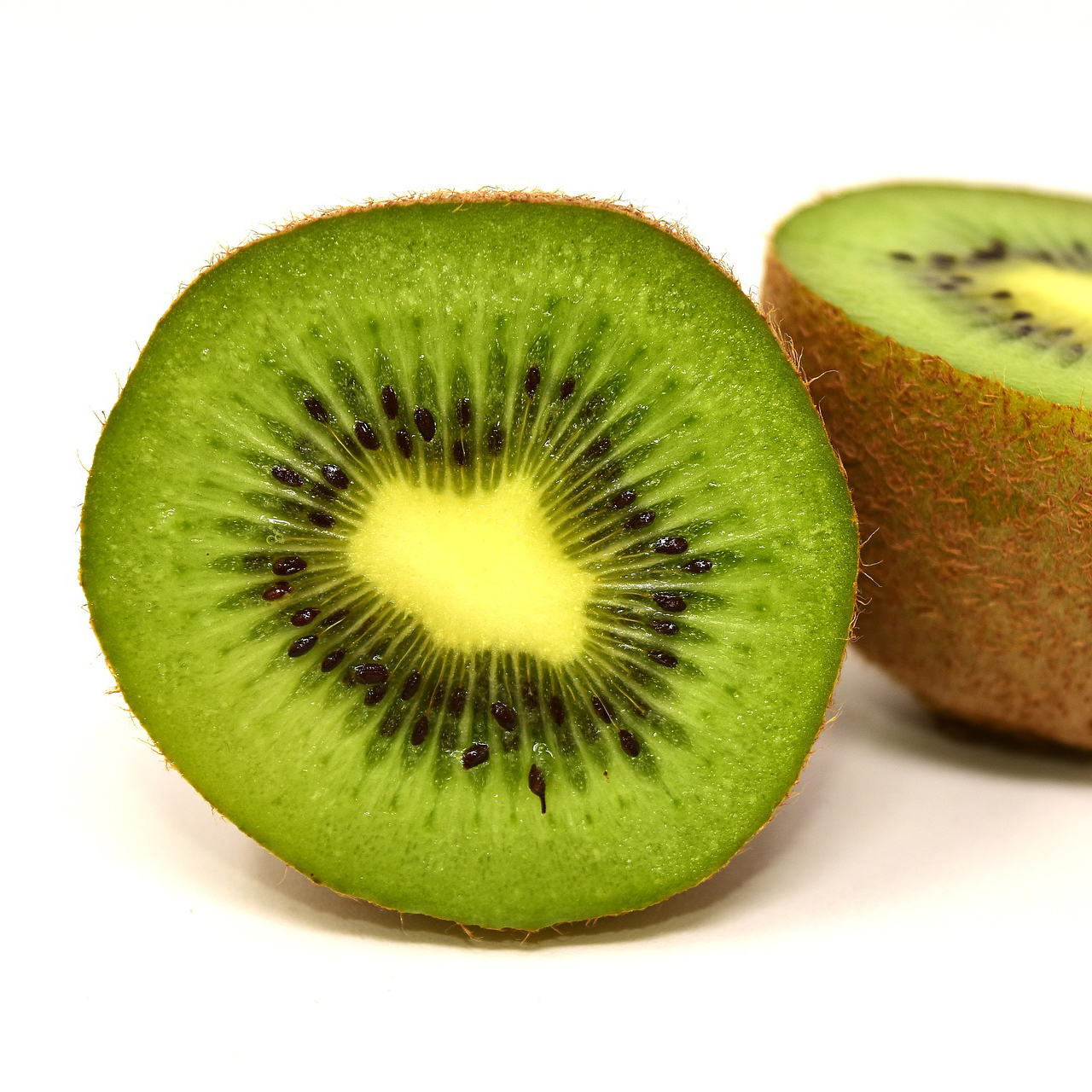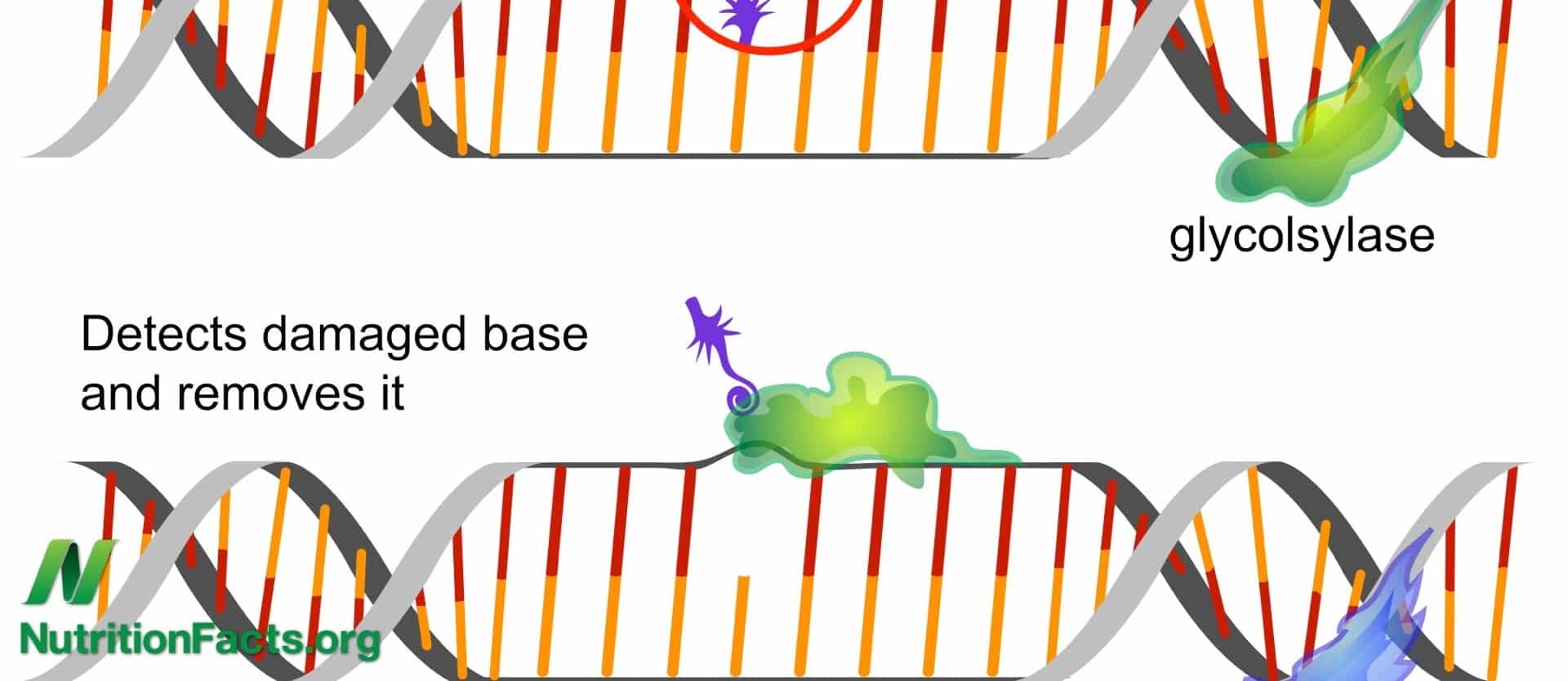
Kiwifruit
What is the single worst aspect about the American diet, as determined by the nearly 500 researchers from more than 300 institutions in 50 countries who developed the ongoing Global Burden of Disease Study, the largest analysis of risk factors for death and disease in history? Not eating enough fruit, such as berries, apples, mangos, pineapples, and kiwifruit.
In my Daily Dozen, I recommend at least a daily serving of berries, in addition to three servings a day of other fruits.
Kiwi is one of the fruits I’ve prescribed to my patients with insomnia (two an hour before bedtime appears to significantly improve sleep onset, duration, and efficiency) and also to help with constipation-type irritable bowel syndrome (two kiwifruit a day seem to significantly improve bowel function). Kiwi certainly seems like a better option than the leading IBS drug, which was pulled from the market for apparently killing too many people.
Kiwifruit also appear to benefit immune function. Preschoolers randomized to eat gold kiwifruits every day appeared to cut their risk of contracting a cold or flu-like illness nearly in half compared to those randomly selected to eat bananas instead. A similar experiment was tried on elderly individuals, another high-risk group. Those in the banana control group who got an upper-respiratory-tract infection suffered for about five days with a sore throat and congestion, compared to the kiwifruit eaters, who felt better after just a day or two. About 1 in 130 children may be allergic to kiwifruit, though, which may rank kiwis as the third-most common food allergen (second only to milk and eggs), so they are not for everyone.
For substantiation of any statements of fact from the peer-reviewed medical literature, please see the associated videos below.
Image Credit: Alexandra München / Pixabay. This image has been modified.
Popular Videos for Kiwifruit

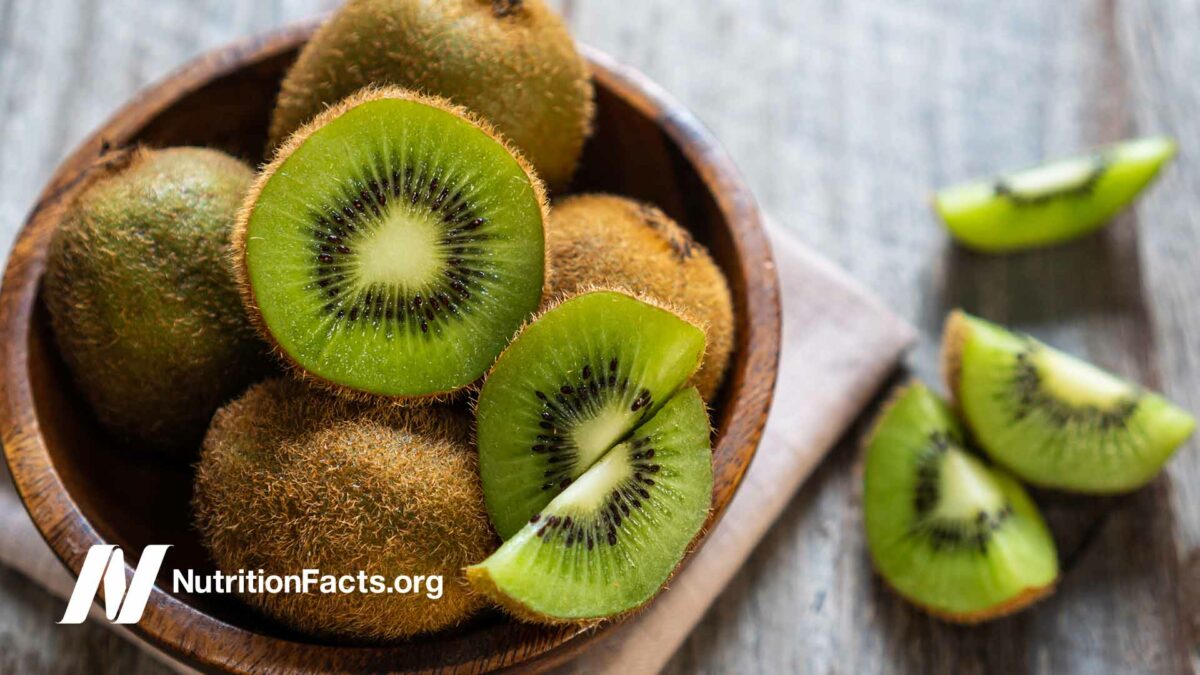
Kiwifruit for Insomnia
Two kiwi fruit an hour before bedtime may improve sleep quality and duration, without the...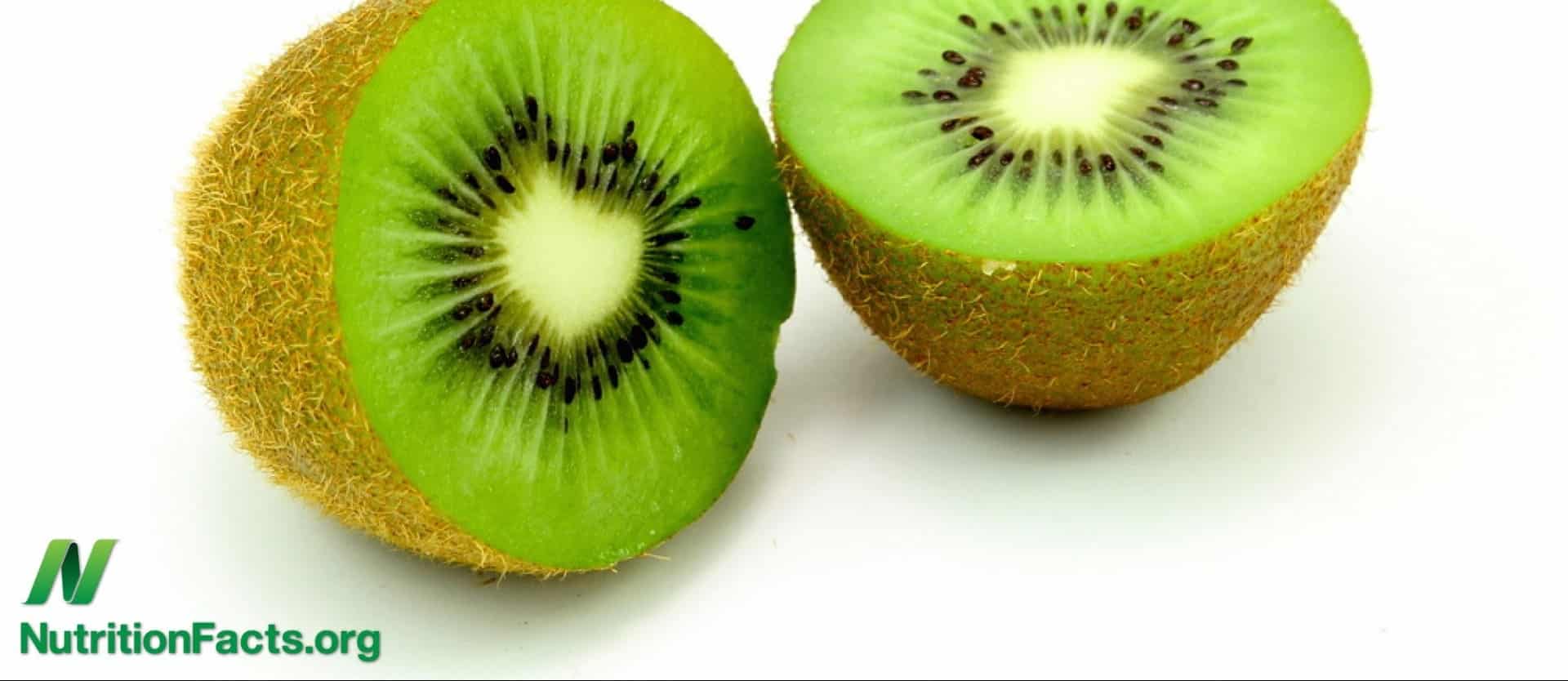
Kiwifruit for Irritable Bowel Syndrome
A kiwifruit intervention was found to improve bowel function in those suffering from irritable bowel...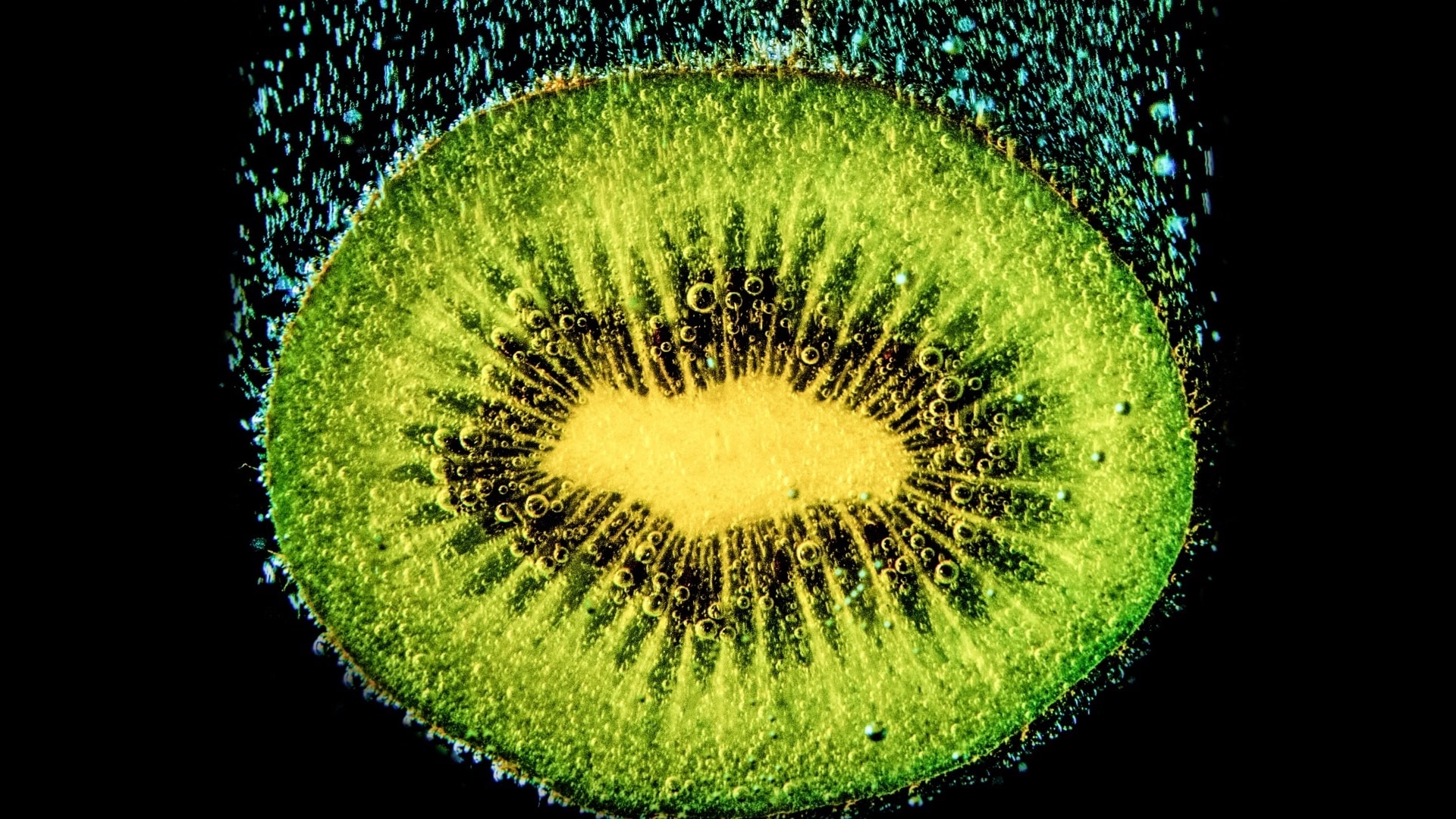
Kiwifruit for the Common Cold
Compared to bananas, does eating kiwifruit decrease the incidence and severity of upper respiratory tract...All Videos for Kiwifruit
-

How to Get Rid of Garlic Breath
After study participants took some garlic, researchers gave them whey protein, lemon juice, green tea, chlorophyll, 7UP soda, a raw pink lady apple, a cooked apple, parsley, spinach, and mint leaves. Which do you think worked best?
-

Do Vitamin C Supplements Help with Anxiety?
What are the risks and benefits of using vitamin C for depression and anxiety?
-

Saffron vs. Memantine (Namenda) for Alzheimer’s
The spice saffron is pitted head-to-head against the leading drug for severe Alzheimer’s disease.
-

Kiwifruit for the Common Cold
Compared to bananas, does eating kiwifruit decrease the incidence and severity of upper respiratory tract infections?
-

The Downside of Green Smoothies
Concerns about smoothies and oxalic acid, nitrate availability, dental erosion, and weight gain are addressed.
-

How to Treat High Blood Pressure with Diet
The first-line treatment for hypertension is lifestyle modification, which often includes the DASH diet. What is it and how can it be improved?
-

Inhibiting Platelet Activation with Tomato Seeds
The yellow fluid around tomato seeds appears to suppress platelet activation without affecting blood clotting. This anti-inflammatory effect may explain why eating tomato products is associated with lower cardiac mortality.
-

Gout Treatment with a Cherry on Top
How do sweet cherries compare to the drug allopurinol and a low-purine diet for the treatment of the painful inflammatory arthritis gout?
-

Tart Cherries for Insomnia
The melatonin content in certain plant foods such as almonds, raspberries, and goji berries may explain the improvement in sleep quality associated with tart cherry consumption.
-

Kiwifruit for Insomnia
Two kiwi fruit an hour before bedtime may improve sleep quality and duration, without the side effects associated with sleeping pills.
-

Human Neurotransmitters in Plants
The consumption of certain fruits is suggested as a potential treatment for depression, given the presence of psychoactive neurotransmitters such as serotonin, dopamine, and melatonin in many plant foods.
-

Uprooting the Leading Causes of Death
Death in America is largely a foodborne illness. Focusing on studies published just over the last year in peer-reviewed scientific medical journals, Dr. Greger offers practical advice on how best to feed ourselves and our families to prevent, treat, and even reverse many of the top 15 killers in the United States.
-

Plant-Based Diets and Cellular Stress Defenses
Measuring the effects of a plant-based diet on the expression of hundreds of different genes at a time, a research group found that an antioxidant-rich portfolio of plant foods such as berries, pomegranates, purple grapes, red cabbage, oregano, and walnuts was able to significantly modify the regulation of genes in the blood of volunteers.
-

Kiwifruit and DNA Repair
Plant-based diets help prevent cancer not only by blocking DNA damage, but by increasing our DNA repair enzymes’ ability to repair any damage that gets by our first line of antioxidant defense.
-

Kiwifruit for Irritable Bowel Syndrome
A kiwifruit intervention was found to improve bowel function in those suffering from irritable bowel syndrome with constipation. This was accomplished without side effects, such as heart attacks and stroke associated with the primary drug prescribed to treat the condition, tegaserod.
-

Treating COPD with Diet
Dietary interventions, including increasing fruit and vegetable intake and decreasing meat intake, may not only help slow the progression of chronic obstructive pulmonary disease, but may actually improve lung function.
-

Amla vs. Cancer Cell Growth
Indian gooseberries (amla), an important plant in Ayurvedic medicine, may have anticancer properties, as well as cough-, fever-, pain-, stress-, and diarrhea-suppressing effects.
-

Antioxidant Content of 3,139 Foods
In the most extensive study of its kind ever published, the amount of anti-aging anticancer antioxidants is measured across thousands of different foods.
